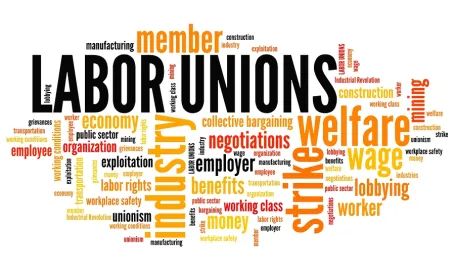Collective bargaining agreements and the duty to bargain imposed by the National Labor Relations Act (NLRA) are often impediments to swift, decisive company action – a fact unionized employers know all too well. The COVID-19 pandemic, however, has already required employers to take quick but necessary action with substantial impact on their workforces. Many other employers will likely face the prospect of having to make these tough decisions in the very near future.
How should employers of unionized workforces approach this situation – that may very well require swift action on little notice – when they are under an obligation to bargain with a union with regard to their employees’ wages, hours, and other terms and conditions of employment?
A memorandum issued by the National Labor Relations Board’s general counsel on March 27, 2020, provides a summary of cases the NLRB has decided over the years in which the duty to bargain has been relaxed or has been required to bend to accommodate emergent situations.
Employers must always remember, though, that the NLRA is but one source of their obligations to their employees and the union. The specifics of each employer’s collective bargaining agreement are likely to govern the employer’s ability or non-ability to act quickly and unilaterally when needed. As detailed in this blog last week, the language of collective bargaining agreements must be consulted to determine the extent of the employer’s right to act unilaterally in a given situation.
However, for unionized employers operating without a collective bargaining agreement – or operating with an agreement that does not speak to the contemplated unilateral action – the general counsel’s memorandum is a useful guide to the Board’s historical holdings when confronted with how the duty to bargain operates in unprecedented crisis situations. Subjects such as layoffs, reductions in hours, and the imposition of more stringent health and safety rules for employees ordinarily are subject to the duty to bargain, but may be relaxed if the employer can demonstrate that “economic exigencies compelled prompt action.” As detailed in the memo, the Board has granted leeway for employers to act decisively in situations caused by hurricanes, the 9/11 terrorist attacks, and ice storms where local governments prohibited non-essential travel.
It must be noted, however, that in each situation the employer was required to demonstrate why the specific action they took unilaterally, for instance, layoffs, was compelled by the circumstances. Moreover, employers are always required to bargain with the union about the effects of any decision, even if the bargaining obligation as to the decision itself is relaxed due to the circumstances.
Making difficult decisions in unprecedented times of crisis always presents some risk. However, as set forth in the NLRB general counsel’s memo, unionized employers are not left without ammunition to make compelling arguments for crucial unilateral action in the face of the COVID-19 pandemic to protect their employees, the public, and the viability of their businesses.





 />i
/>i

